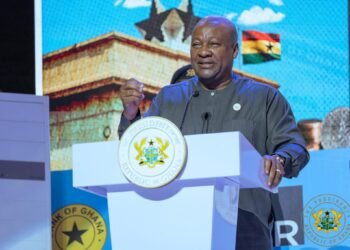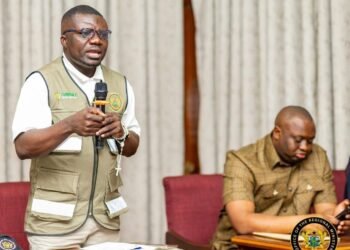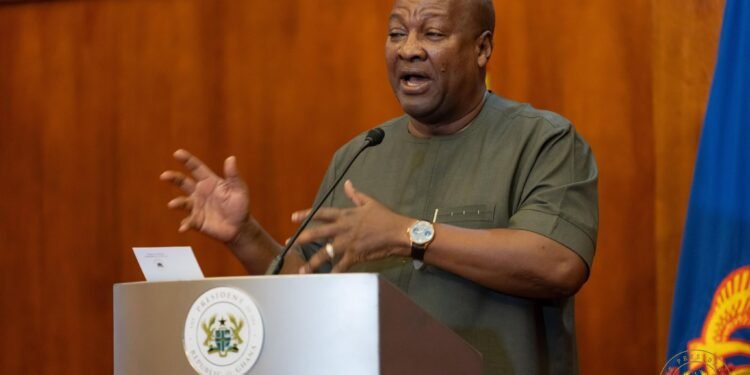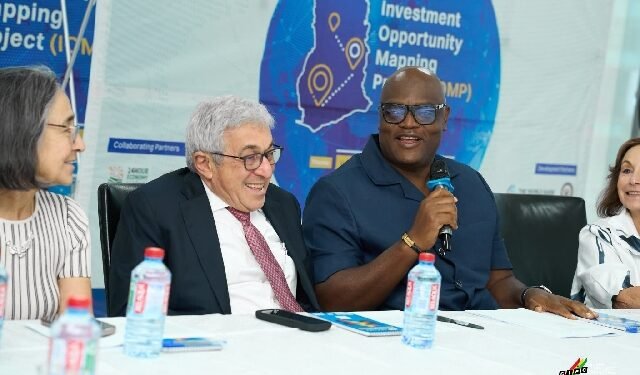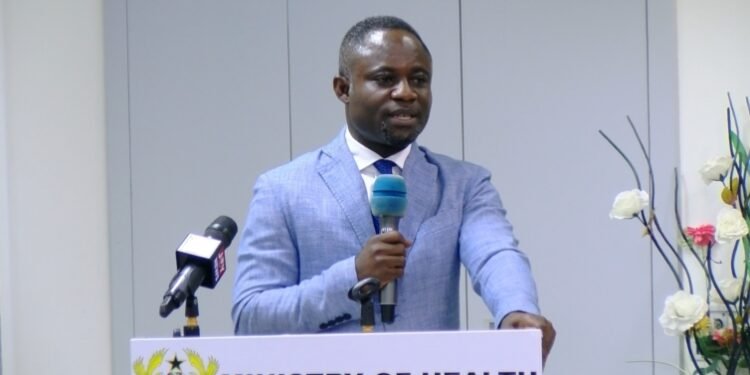Calls for Ghana to create a dedicated authority to regulate Environmental, Social, and Governance (ESG) practices have gained momentum following strong advocacy at the 1st Africa Global ESG and Sustainability Reporting Summit 2025.
The summit, held at the Mövenpick Ambassador Hotel in Accra, brought together government officials, industry leaders, consultants, and academics to discuss how ESG reporting, the EU taxonomy, and sustainability frameworks can shape Africa’s economic future.
In an interview with Vaultz News, mining consultant Ing. Gomashie Wisdom made a compelling case for institutional reforms.
“Time for Ghana to establish ESG & Sustainability Authority to consolidate gains & sanitize the sector.
“A concentrated ESG effort properly anchored under an Authority, an Act of Parliament, and Legislative Instruments will be transformational.”
Ing. Gomashie Wisdom, Mining Consultant
According to him, the government should consolidate ESG, sustainability, and corporate social responsibility (CSR) frameworks across both public and private entities.
By legislating them under a single authority, Ghana could enforce accountability and transparency while securing long-term sustainability.

“ESG reporting is essential to safeguarding the future of our economy and ensuring businesses operate responsibly while contributing to national development.”
Ing. Gomashie Wisdom, Mining Consultant
For the mining sector in particular, Ing. Gomashie argued that such an authority could be a game-changer in addressing longstanding challenges. He outlined key areas where reforms would make an immediate impact.
“Reclamation bonds shall be enforced more rigorously.
“Credit facilities to miners should only pass if they meet green and sustainability tests. Community development commitments must be tied directly to measurable ESG indicators.”
Ing. Gomashie Wisdom, Mining Consultant
He further suggested that the proposed authority could collaborate closely with the Minerals Commission and the Environmental Protection Agency (EPA) to create synergies and reduce institutional fragmentation.
Bridging the Gaps in ASM Regulation

A major area of concern for Ing. Gomashie is the artisanal and small-scale mining (ASM) sector, which continues to face sustainability and accountability challenges.
“Currently, I am of the view that sustainability in the mining sector, especially in the ASM space, is treated as an afterthought by operators, and as a supplementary exercise by state institutions like the EPA, whose mandate in mining remains fragmented and secondary.”
Ing. Gomashie Wisdom, Mining Consultant
This, he argued, is precisely why an independent ESG and Sustainability Authority is needed to set clear standards and enforce compliance.
Ing. Gomashie was clear in his belief that ESG practices should not be viewed as burdensome regulations but rather as tools for transformation.
“As someone deeply involved in Ghana’s mining sector, I see ESG not as a burden but as the key to tackling challenges like illegal mining, environmental degradation, and weak accountability.”
Ing. Gomashie Wisdom, Mining Consultant
He added that when properly structured, ESG frameworks could help Ghana build a more competitive mining industry that benefits both the economy and local communities. “Together, we can build a more sustainable and competitive future,” he stated with optimism.
Broader ESG Agenda
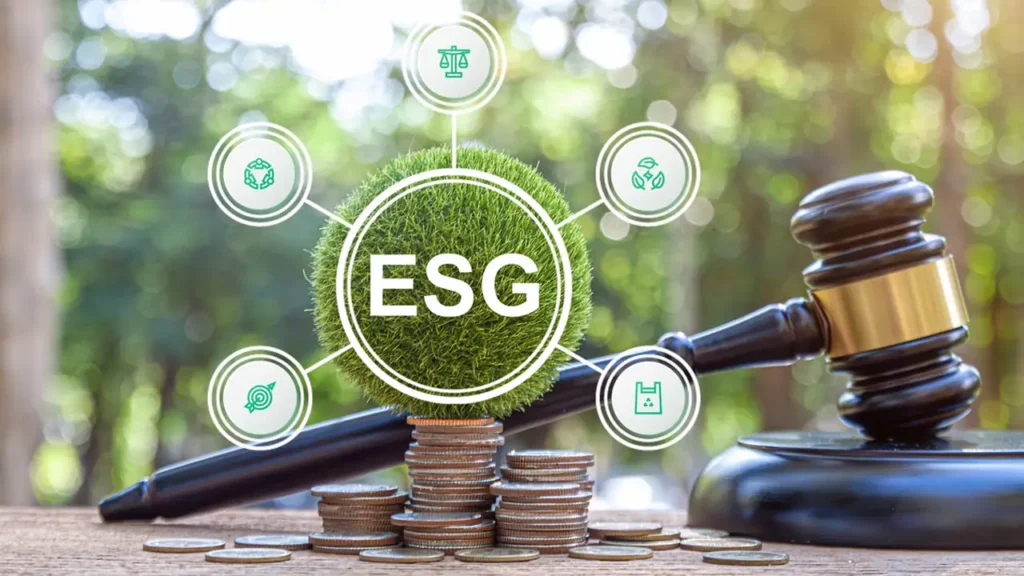
The summit itself underscored the urgency of integrating sustainability into business and governance in Africa.
With the global economy moving toward green standards and sustainable investment, African economies risk being left behind without robust ESG frameworks.
Participants highlighted that ESG reporting and compliance are becoming prerequisites for accessing international financing, export markets, and foreign direct investment.
For Ghana, whose economy is heavily reliant on natural resources, integrating ESG into governance and industrial policy could prove vital for long-term stability and competitiveness.
The proposed establishment of an ESG and Sustainability Authority could therefore not only regulate industries like mining but also set standards across sectors such as energy, manufacturing, and finance, ensuring that Ghana’s economic growth aligns with environmental and social sustainability.
As conversations on sustainability gain momentum globally, Ghana’s next steps could determine whether it emerges as a continental leader in ESG-driven economic transformation.
Ing. Gomashie’s call, made on one of the most prominent platforms for ESG dialogue in Africa, has opened a new chapter in the national debate over how best to balance development, accountability, and sustainability.
Read Also: Banking Sector Shakeup: Five Ghanaian Banks Under Intense BoG Scrutiny Over Capital Failures







